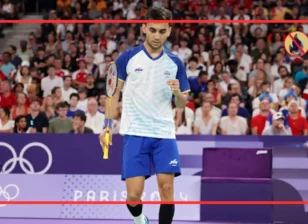Exploring the Landscape of Right-Wing Parties in France: An In-Depth Analysis
In recent years, the rise of right-wing political parties has garnered significant attention, particularly in the context of European politics. France, a nation deeply rooted in a complex historical backdrop, has seen the emergence and growth of several right-wing parties.
Historical Context and Far-Right Party Family
France’s political history is rife with ideological shifts and socio-political upheavals. The far-right party family in France has a long-standing legacy, often intertwined with historical events, societal tensions, and economic fluctuations. Notable parties such as the National Rally (formerly the National Front) and Debout la France have established themselves as prominent entities within the far-right spectrum, espousing nationalist and populist ideologies.
Ideological Makeup of Far-Right Parties
The ideological makeup of far-right parties in France encompasses a blend of nationalist fervour, anti-immigration sentiments, and a call for a traditionalist, culturally homogenous society. These parties often emphasise the preservation of national identity, advocating for stricter immigration policies and a more assertive stance on cultural assimilation.
Demand-Side Explanations
The growing support for far-right parties in France can be attributed to various demand-side explanations, including citizens’ concerns over immigration, cultural integration, and perceived threats to national identity. Economic insecurities, coupled with fears of globalisation eroding traditional values. It has also fueled the appeal of far-right narratives among certain segments of the population.
Supply-Side Explanations
The supply-side explanations for the rise of right-wing parties in France encompass the strategic positioning of these parties on key issues. Their adept use of media and propaganda, and the skillful exploitation of public discontent. Additionally, the failures of mainstream political establishments in addressing pertinent societal issues have provided fertile ground for the far right to exploit political disillusionment.
Electoral Success of Far-Right Parties
The electoral success of far-right parties in France has fluctuated over the years, marked by significant milestones and setbacks. While experiencing substantial support in certain regions, these parties have faced challenges in gaining widespread acceptance due to the polarisation of their ideologies and controversial policy proposals.
Grievances and Political Opportunity Structure
Far-right supporters often express grievances about job insecurity, cultural displacement, and traditional values erosion. The political opportunity structure, influenced by socio-economic conditions and mainstream discourse, influences these grievances into electoral support for far-right movements.
Interaction Between Demand-Side and Supply-Side Factors
The interplay between demand-side and supply-side factors is instrumental in understanding the dynamics of far-right political movements in France. The resonance of certain ideological appeals among the populace, coupled with strategic messaging and political manoeuvring by far-right leaders, has shaped the landscape of contemporary French politics.
Political Geography of Far-Right Support
The political geography of far-right support in France highlights regional disparities, with certain areas exhibiting a more pronounced affinity towards far-right ideologies. Factors such as economic deprivation, cultural isolation, and historical legacies contribute to the concentration of far-right support in specific regions, illustrating the localised nature of these political preferences.
Different Stages of Far-Right Success
The success of far-right movements in France has been characterised by electoral gains, internal party restructuring. The challenges in sustaining political relevance, highlighting the complexities of their ideologies and the challenges they face.
Party Families and Transnational Links
Far-right parties in France are part of larger party families with transnational links, sharing similar ideological underpinnings and occasionally collaborating on issues of mutual interest. These transnational connections often bolster the influence and visibility of far-right parties, facilitating the exchange of ideas and strategies across international borders.
Radicalism, Extremism, Populism, Nationalism, Civic Nationalism, and Ethnic Nationalism
The far-right movement in France is facing scrutiny due to the presence of radical and extremist elements within certain factions, despite their significant populist characteristic, and the extent to which this intersects with their political agenda. Far-right parties in France primarily rely on nationalism, with civic nationalism emphasising shared values and citizenship, and ethnic nationalism focusing on ancestral heritage and cultural exclusivity.
Nativism, National Rebirth, and Revolutionary Nationalism
Nativist sentiments, often intertwined with calls for a national rebirth and revolutionary nationalism, underscore the transformative ambitions espoused by some segments of the far-right movement in France. The romanticization of a perceived golden era and the desire for a radical societal overhaul underpin the rhetoric of far-right leaders, resonating with certain disillusioned segments of the population.
Conclusion
The landscape of right-wing parties in France is a confluence of historical legacies, socio-economic tensions, and ideological fervour. Understanding the intricate interplay of demand-side and supply-side factors, as well as the role of grievances, political opportunity structures, and nationalist ideologies, is crucial in comprehending the evolution and impact of these political movements. As France grapples with the challenges posed by the far right. It becomes imperative to critically assess the implications of their rhetoric and policy proposals for the country’s socio-political fabric and international standing.





